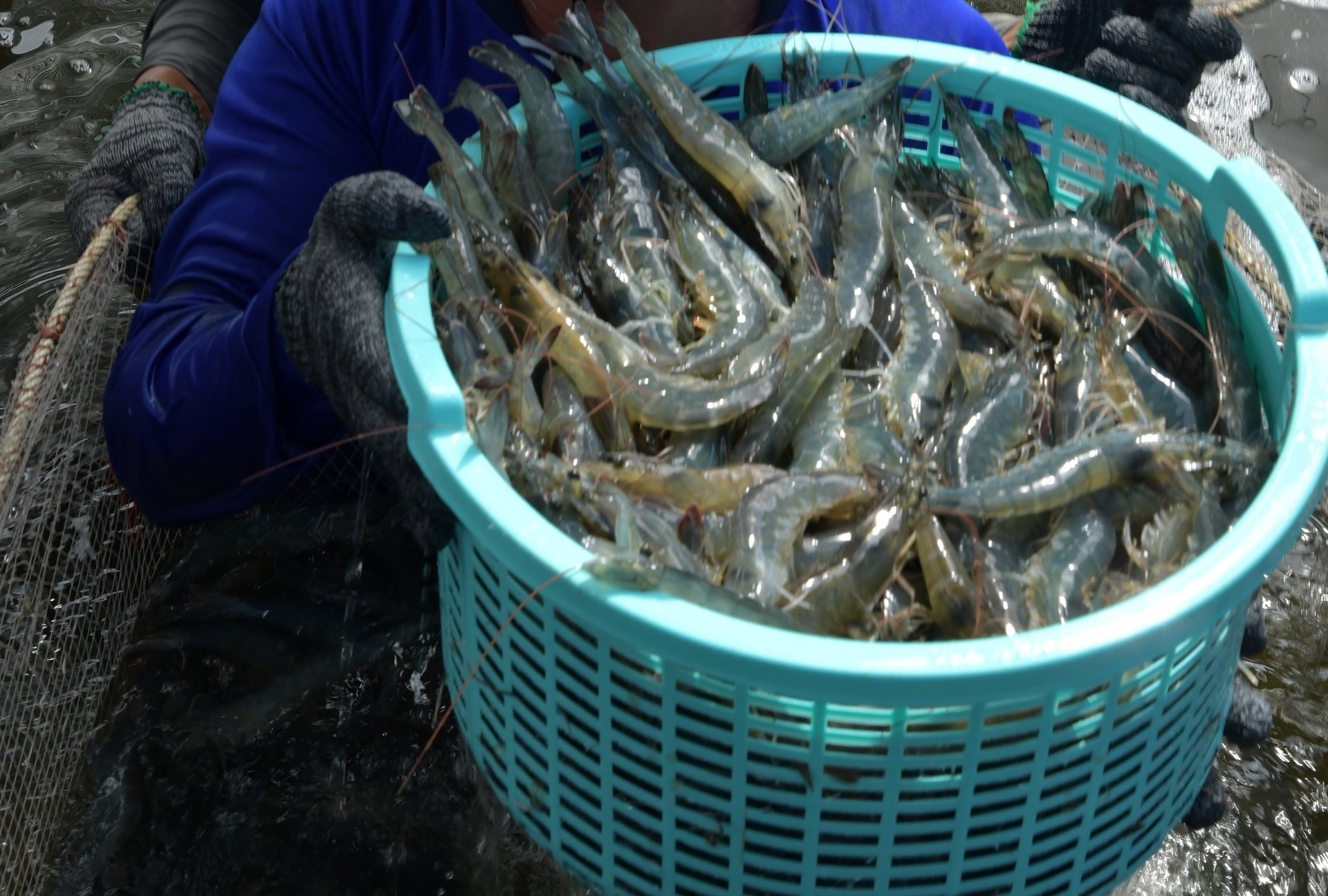December 17, 2025 | 14:07 GMT +7
December 17, 2025 | 14:07 GMT +7
Hotline: 0913.378.918
December 17, 2025 | 14:07 GMT +7
Hotline: 0913.378.918
According to the Department of Fisheries and Fisheries Surveillance, total fishery output in the first three months of the year reached 2 million tonnes, an increase of 2.8% year-on-year. Of this, seafood output reached nearly 2 million tonnes, up by 0.1%, while aquaculture output surpassed 1.1 million tonnes, up by 5.1%. Seafood export turnover stood at USD 2.29 billion, a year-on-year rise of 18.1%.
Tran Dinh Luan, Director of the Department of Fisheries and Fisheries Surveillance, assessed that the sector’s targeted growth rate of 4.35% for 2025 remains a challenge.
However, positive developments in two key products—shrimp and pangasius—during Q1 brought optimistic prospects. Notably, shrimp achieved an impressive growth rate of over 37.8% year-on-year. This result serves as a highlight, reinforcing confidence in the sector’s ability to fulfil its annual plan.

Director of the Department of Fisheries and Fisheries Surveillance Tran Dinh Luan speaks at the conference to review the first quarter work and deploy key tasks for April and the second quarter of 2025 of the Ministry of Agriculture and Environment. Photo: Quynh Chi.
In recent months, the Department has taken a proactive role in advising the Ministry of Agriculture and Environment, thereby contributing effectively to sectoral direction and oversight.
According to the Director, the United States’ announcement of reprioritising capital for Vietnam will likely have a significant impact on the fishery sector, particularly as fishery exports to the US account for approximately 18–20% of total turnover.
Immediately following the announcement, several localities reported mass harvesting of fishery products. In response, the Department of Fisheries and Fisheries Surveillance promptly issued a directive to Departments of Agriculture and Environment in coastal provinces and cities in the Mekong Delta, advising local people and enterprises to remain calm and avoid panic-driven decisions such as premature harvesting, production halts, or reduced stocking. These reactions could disrupt production planning, destabilise the supply chain, and undermine the sector’s overall growth objectives, especially while the governments of both countries continue to negotiate a mutually acceptable agreement.
He emphasized that the stablization of the materials is a significant factor as fishery production can not surly general output in the short term.
To achieve the fisheries sector’s growth targets, Mr Tran Dinh Luan stated that in the second quarter and the near future, the sector will continue diversifying farmed species to include those with greater market competitiveness, such as tilapia, in order to avoid over-reliance on just a few species.
In addition, the Directorate will collaborate with the Legal Department of the Ministry of Agriculture and Environment to finalise relevant legal documents, and proactively assign units to review existing circulars, decrees, technical regulations, and standards.
At the same time, under the Fisheries Resource Protection and Exploitation Plan for the period 2021–2030, with orientation to 2050, many spawning and nursery grounds have now entered a critical period requiring fishing bans. The Directorate of Fisheries and Fisheries Surveillance is expected to submit an official report to the Ministry next week, proposing that localities strictly implement related directives.

Ensuring a stable source of raw materials for seafood processing and export is a key factor in helping the industry maintain its growth momentum. Photo: Hong Tham.
The Directorate will also step up inspection and supervision in localities, aiming to gradually transition from indiscriminate fishing to the protection of spawning and nursery areas, ultimately establishing a more orderly and disciplined fishing industry. “Only by doing so can we ensure that fisheries exploitation and conservation are truly effective and sustainable,” Mr Luan emphasised.
Deputy Minister of Agriculture and Environment Phung Duc Tien instructed that, in order to reach this year’s growth target of 4.35%, the fishery sector must take even more decisive action.
Regarding the fight against IUU (Illegal, Unreported and Unregulated) fishing, the Deputy Minister stressed the importance of making the utmost effort to have the yellow card lifted this year. This entails updating monthly reports in line with the directive spirit of Instruction No. 32-CT/TW dated 10 April 2024 by the Secretariat, which calls for strengthened Party leadership in combatting IUU fishing and promoting sustainable development.
According to Deputy Minister Phung Duc Tien, Vietnam’s shrimp production stands at 1.3 million tonnes annually, with export value reaching USD 4.3 billion, while pangasius production is 1.65 million tonnes, generating over USD 2 billion. As productivity is nearing its ceiling, it is necessary to thoroughly discuss and develop new driving forces for these two key industries.
At the same time, the sector must diversify its farmed species portfolio by tapping into those with strong potential and ample development space. Furthermore, greater attention should be paid to the conservation, protection, and development of fishery resources.
Translated by Linh Linh

(VAN) The seafood industry is aiming for an export goal of USD 10.7 billion in 2025. However, resolving bottlenecks regarding data and green finance is an urgent requirement.

(VAN) Exports of ornamental fish generate nearly USD 15 million annually for Ho Chi Minh City, affirming the sector's position as a distinctive economic component of the city's modern urban agriculture structure.

(VAN) Lang Son agricultural products are upgrading planting-area standards, increasing deep processing, and expanding linkages to move toward sustainable exports.

(VAN) Despite numerous challenges, Vietnam's key seafood products are maintaining strong momentum, setting the stage for full-year exports to potentially reach USD 11 billion.

(VAN) The signing of a protocol between Viet Nam and China on the export of fresh jackfruit represents a significant milestone in agricultural trade cooperation between the two countries.

(VAN) On November 27, the Ninh Binh Department of Agriculture and Environment and the Institute for Green Growth Research organized a training course on greenhouse gas inventory for businesses.

(VAN) China’s cooking oil is suddenly flooding into India. It all comes down to a soybean surplus that Beijing doesn’t quite know what to do with.